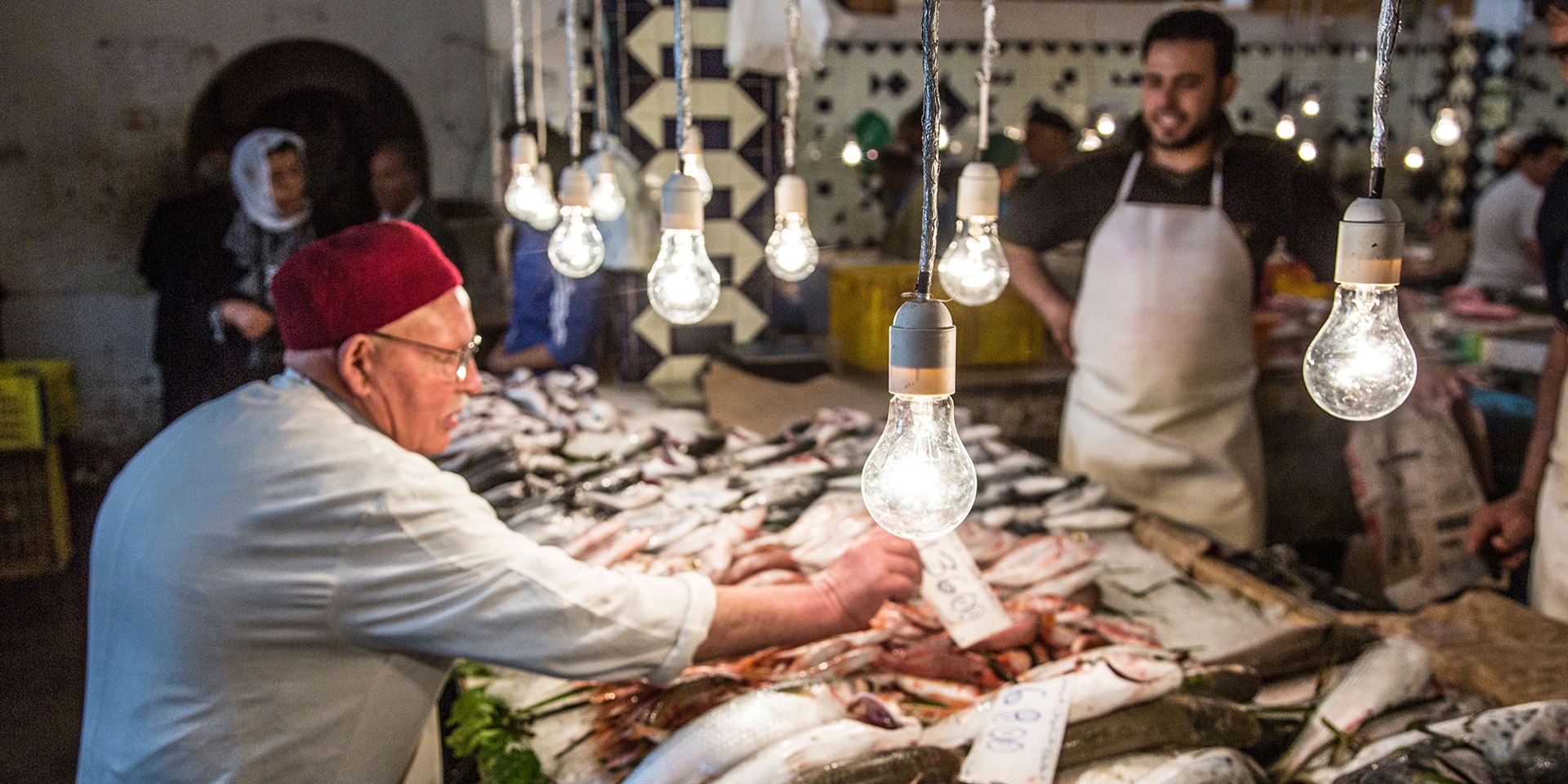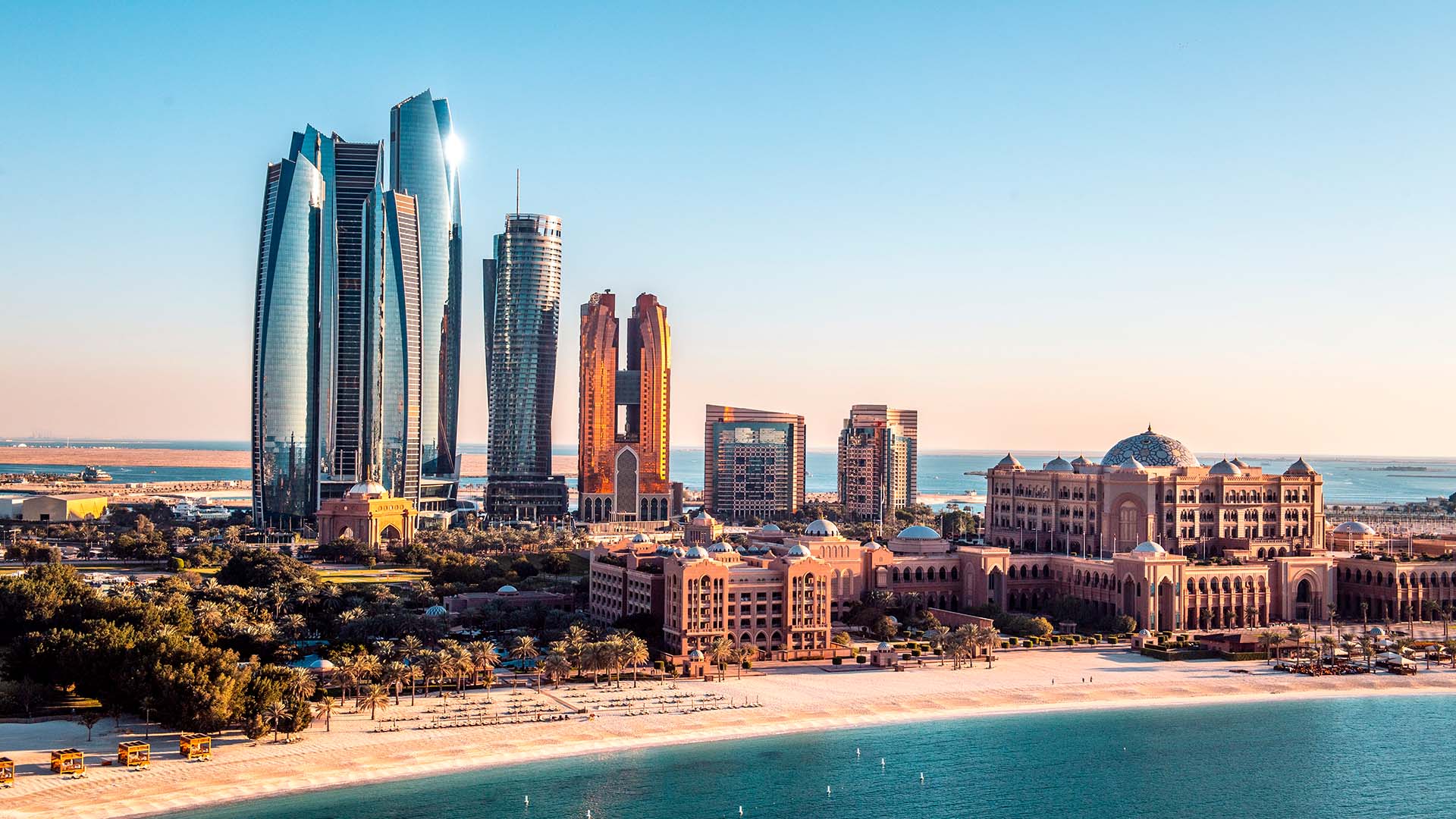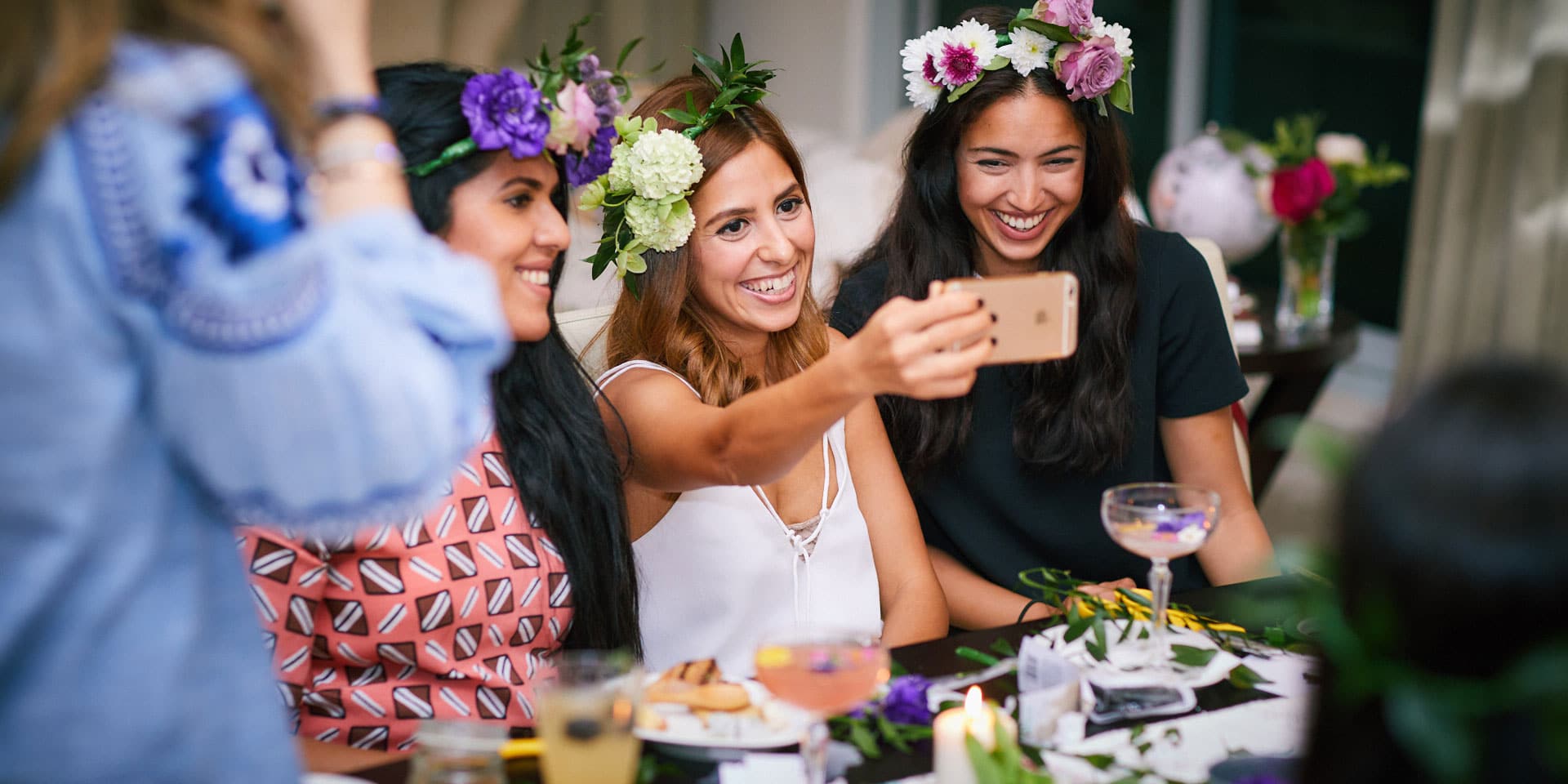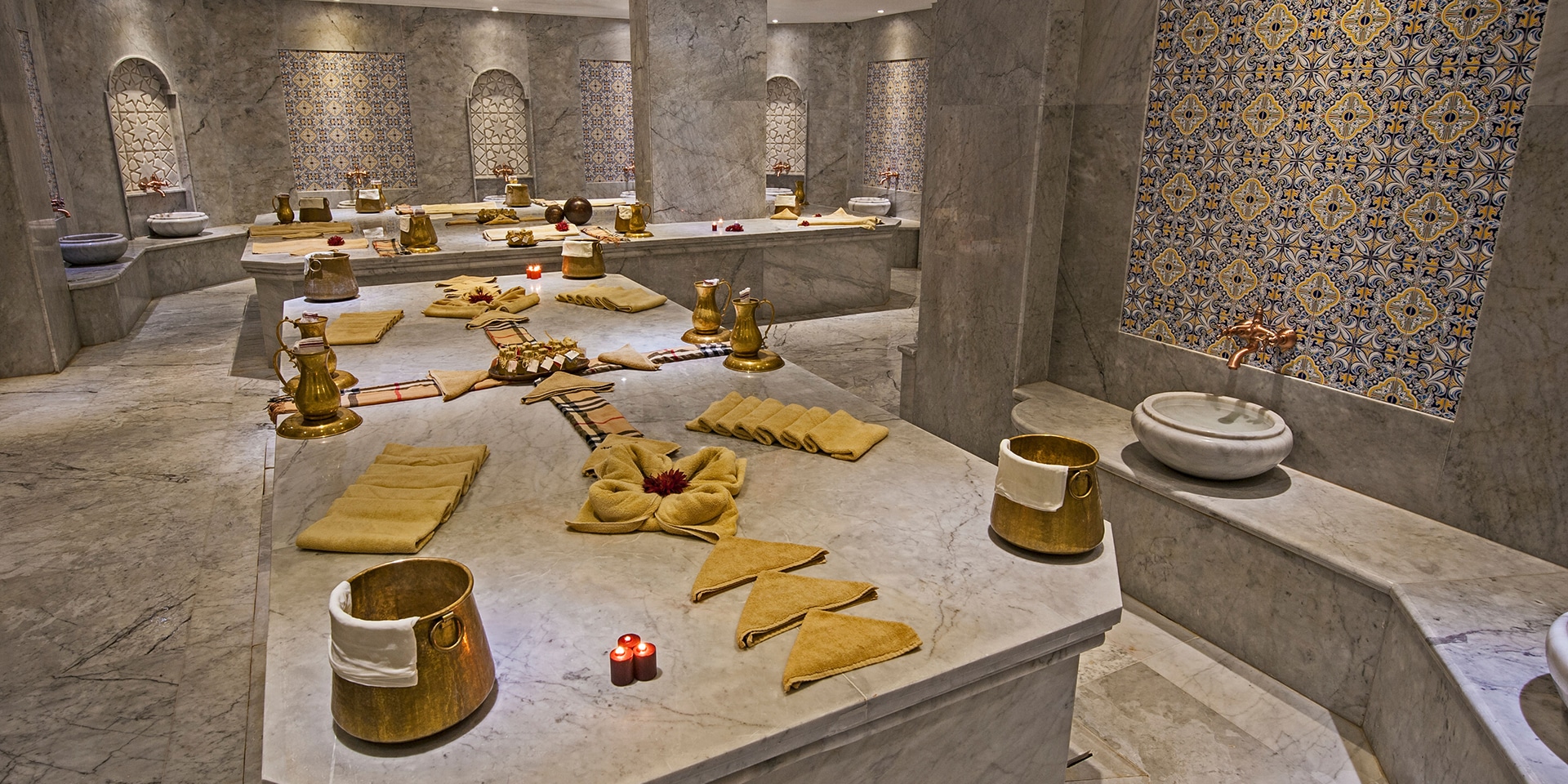
At the Mina Zayed Fish Souk you’ll find you’ll find stalls stocked with clams, mackerel and other seafood fresh from Arabian waters. (Photo: Alamy)
Abu DhabiA First-Timer’s Guide to Souks in Abu Dhabi
By Natasha AmarAt the Mina Zayed Fish Souk you’ll find you’ll find stalls stocked with clams, mackerel and other seafood fresh from Arabian waters. (Photo: Alamy)
The many souks of Abu Dhabi offer travelers a cultural experience like no other. As you venture into these traditional marketplaces, prepare to lose yourself in narrow alleys lined with opulent Persian rugs, breathe in the woody scents of traditional oud perfume and frankincense, try on embroidered traditional attire, sample sticky-sweet medjool dates and engage in good-natured banter with local fishermen.
The Arabic word souk translates into market. For centuries Abu Dhabi has been a hub for trade and commerce. Ships would arrive from the Indian subcontinent and Asia laden with coveted goods like fine silks, cardamom, saffron, pearls and gold, which would be traded in the city’s souks.
Though the old souks have been renovated and newer ones stock high-end luxury goods, many hold onto much of their original character: narrow lanes buzzing with activity, local sellers who are happy to chat a few minutes longer, unique souvenirs sold at affordable prices and plenty of photo opportunities.
Mina Zayed Fish Souk
It’s hard to miss the Fish Souk at Mina Zayed Port when you’re nearby; you’ll sniff the unmistakable briny smell of the day’s catch wafting from the market. Here you’ll find stalls stocked with clams, mackerel, crabs, shrimp, prawns and red snapper fresh from Arabian waters. Each day the market comes alive at 3 a.m. when fishermen sort their bounty and Emirati auctioneers walk buyers around, showing off the best of the lot. Tourists tend to arrive a bit later and can stroll around the souk themselves, watching the activity.
Use your best haggling skills to buy the fish. Then walk to a stall where cleaners wash, gut and fillet it for you. Finally, seek out the market’s cooks, who sear or fry your fish or serve it in a tangy fish curry. Dig into this inexpensive meal while admiring the souk’s harbor views. Always ask for permission from vendors before taking photos, as this is a working port. The floor can be a wet mess, so don’t wear your best shoes.
Abu Dhabi Carpet Souk
The Carpet Souk on Al Mina Road is a fascinating maze of more than 100 shops stocked with Afghani and Iranian handmade carpets in traditional designs; machine-made carpets and rugs from Turkey, China and Central Asia; prayer rugs; and Arabic-design cushions and upholstery.
The many options might appear confusing, but shopkeepers are happy to guide you. Though handmade carpets might not appear as perfect in design and symmetry as those that are machine-made, their craftsmanship increases their value — and cost. Iranian carpets are the most prized of the lot.
Don’t be intimidated by the touting you’ll encounter as shopkeepers unfurl carpet after carpet to impress you. You’re allowed to move on to the next shop if you’re undecided on a purchase. Haggling down to one-third of the quoted price is expected.
Al Mina Fruit and Vegetable Souk
Also in the Mina Zayed Port is the Al Mina Fruit and Vegetable Souk, a colorful riot of coconuts from Sri Lanka, mangoes from Pakistan, tomatoes from Jordan and bananas from India, along with peppers, tomatoes, cucumbers and strawberries produced by local farms. A new section of the market stocks Emirati produce to support local farmers.
At the dates and dried fruits section, sample date varieties from across the Middle East like medjool, fard, khalass and barhi. These vary in size, quality, color, sweetness and price and are available plain, chocolate-coated or stuffed with nuts. Both medjoul and khalass are considered high quality and make for excellent gifts. You’ll also find dried fruits and nuts like figs, walnuts, roasted pistachios and cashews. Try before you buy, and don’t forget to bargain.
Madinat Zayed Gold Souk
At the Gold Souk, part of the Madinat Zayed Shopping Centre, you’ll be awestruck by dazzling window displays of intricate wedding jewelry in Arabic designs and elegant pieces made of gold, silver, diamonds and precious stones. The range of styles and the high quality of craftsmanship make this a good place to shop for jewelry custom designed to your tastes.
Al Ain Camel Souk
The Al Ain Camel Souk is perhaps the most authentic livestock market remaining in the U.A.E. Drive or walk through the market where baby and young camels that are bred for meat, milk and camel racing are housed next to older camels in pens. Goats and sheep are also sold at the market.
Always ask for permission before you photograph the camels. The Bedouin herders may invite you into their pens to take photos with their camels. Some might demand payment after the photo, so be wary of an invitation if you’re not too keen on tipping, or agree upon a price before you enter. Pay attention as market theatrics play out; the haggling between sellers and potential buyers can quickly become heated. Women are advised to dress modestly to avoid unwanted attention.
Souk Qaryat Al Beri
Souk Qaryat Al Beri can best be described as Arabian fairy tale meets Venetian romance. Take a moment to admire the many pointed arches, ornate lamps and chandeliers that decorate its interior. This sprawling complex houses international and local retail outlets selling high-end merchandise, as well as salons, cafés, restaurants and an art gallery.
Hop onto an abra, or water taxi, and explore the canals that snake through the picturesque complex. Hungry? Enjoy an alfresco meal on the waterfront terrace at one of many restaurants serving French, Italian, Lebanese and Emirati cuisine. Shop for high-quality souvenirs and antiques, jewelry, abayas and oud from some of the most reputed perfumers in the city. Don’t expect to bargain much here; prices are fixed.
Souk Al Zafarana
Experience Emirati heritage at the Souk Al Zafarana in Al Ain. Buy souvenirs such as embroidered abayas for women, frankincense, henna, spices, dallah (traditional Arabic coffee pots) and oud. Don’t be shy about bargaining; it’s expected.







